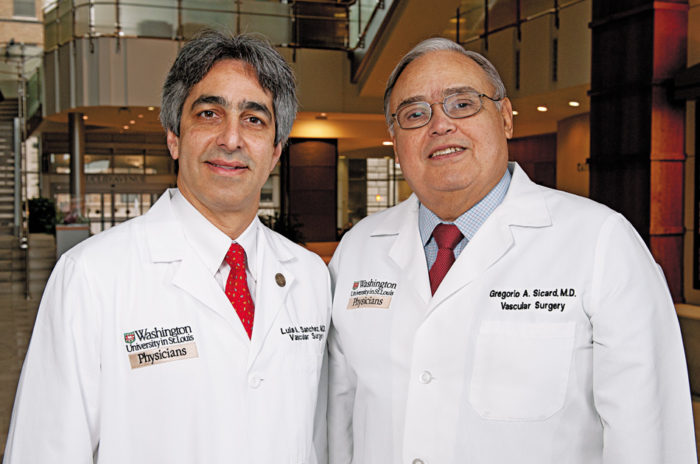Customized stents treat abdominal aortic aneurysms
Washington University is involved in a new trial to test custom-made devices to treat abdominal aortic aneurysms

Vascular surgeons Luis Sanchez, MD, left, and Gregorio Sicard, MD, are involved in a trial to test custom-made devices to treat aneurysms.
Minimally invasive techniques developed in recent years have greatly improved the safety of surgical treatment of abdominal aortic aneurysms, which are enlargements of the abdominal aortic artery. Yet for many patients—those whose aneurysms are too close to the arteries that feed the kidneys—stent placement has not been an option because the stent itself would block blood flow to the kidneys. New devices featuring small openings—fenestrations— can be strategically positioned to allow blood to pass into the renal arteries.
But a challenge to placing fenestrated stents is that blood vessel anatomy varies from person to person. To accommodate that variability, fenestrated stents are custom-made for each patient, based on measurements and images taken by vascular surgeons Luis Sanchez, MD, and Gregorio Sicard, MD, who serves as the principal investigator of a trial testing these endovascular devices.
According to Sanchez, the initial patients enrolled in the trial have done well. Their aneurysms are treated while preserving blood flow to the kidneys and avoiding major open surgery.
The clinical trial is currently in its extended phase, continuing to enroll patients who fit the criteria as the device awaits final approval from the FDA.






